New Startups stirring up the tech sector in the Gaza Strip
Stories
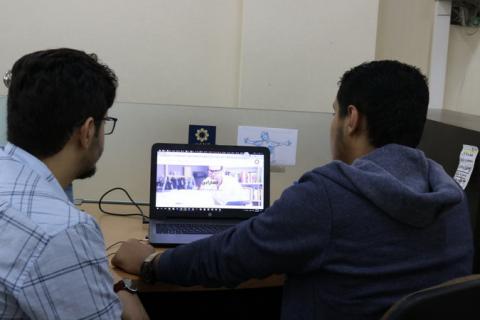
New Startups stirring up the tech sector in the Gaza Strip
Educational innovation
Rami Felfel, founder of the (Innovation of Education) was a high school teacher in the Gaza strip, and has felt difficulties that students suffer when they study for the final tawjihi year where they try to collect materials and tests from their friends and are unable to know when they have answered correctly or not.
“We wanted to develop an electronic exam platform that includes a variety of question types, and provides immediate feedback to students so that they can learn faster and more effectively, and link with their teachers quicker” said Felfel.
To realise this, Fefel and his co-founder has joined “Riyada” project that has facilitated the establishment and empowerment of 13+ startups in ICT and relevant sectors, supported from Human Appeal UK, and implemented via Taawon in partnership with the Islamic University of Gaza’s BTI incubator.
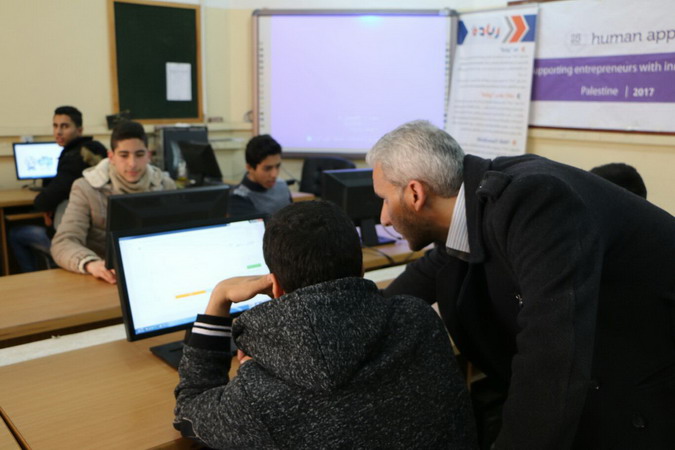
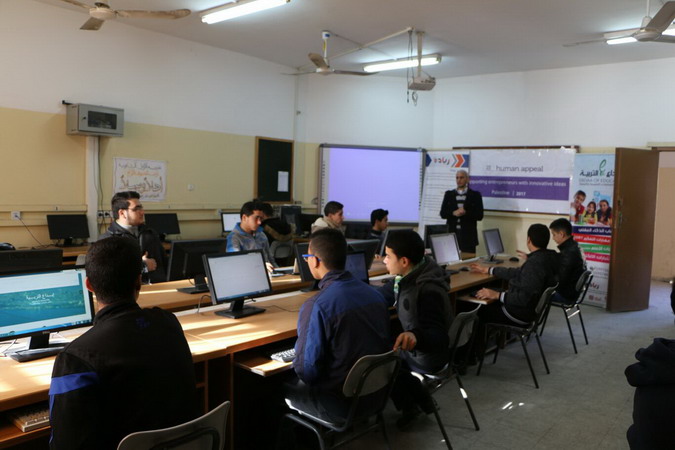
He added that their startup, (Innovation of Education), has developed an online platform called "Smart Test", which provides educational and mentoring services for all educational fields, provides intelligence measurement services and special programs for gifted students, and aims to facilitate the difficulty students face in their final high school years and facilitate and improve their learning experience.
Last month, the startup has held the first computerized Biology exam for students of the 11th grade at AlKarmel Public High School, where students were very engaged and happy with this new experience.
Nader Abdulnabi, Riyada Project coordinator, said that (Innovation of Education) has held the electronic test at Alkramel High School for about 40 students who were tested in an electronic suitable environment for 45 minutes, where they could immediately see how they performed while their marks were passed to their teachers.
Fahad Al-Din Muhanna, a teacher of the biology course at Alkarmel High School, stressed that the project facilitates the design of the tests and saves a lot of time and effort in the marking and revision process. He pointed out the flexibility of the system in designing the test in accordance with the students' levels through a variety of questions as it enables students to read their results graphically, which helps in determining, analyzing and comparing student levels and weak points.
Innovation in translation and languages
Another startup benefiting from Riyada project is “Al Farabi”, an emerging startup from Gaza working in multilingual translation services that provides translation services to 18 languages worldwide.
It seems almost impossible for two young men who have not yet graduated, but they have already taken significant steps towards their childhood dream, their translation startup “Al-Farabi”
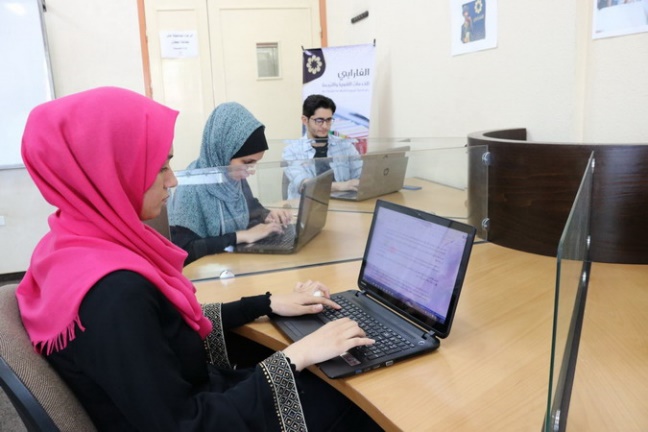
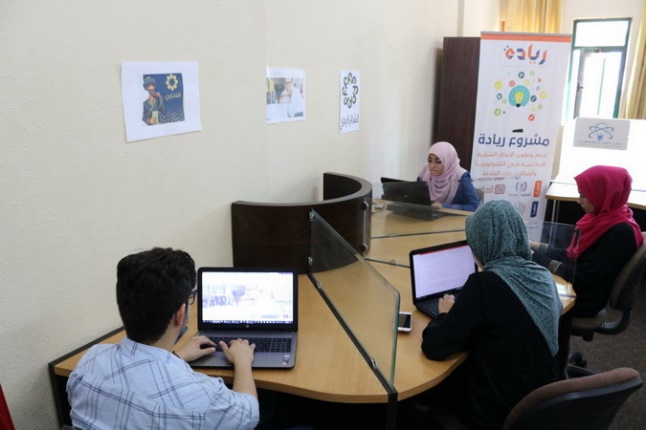
In 2016, Anas Abu Samhan and Hossam Tanira (24) have graduated from the university with an idea in mind. Anas explained that the idea of the translation project began to crystallize when he saw a man with signs of sadness on his face while he was look at a non-Arabic medical report of his sick daughter and unable to understand what it said, which led to the passion and love of translation stronger with Anas.
Anas, a graduate of the Faculty of Arts, Department of English at the Islamic University, says: "During the past five years, I tried to establish relationships with a number of translators on Facebook, so I later managed to create a wide network of translators worldwide."
"At first, I was afraid of creating an integrated team in the Gaza Strip for Al-Farabi because there was no place equipped with computers and the Internet. Once he and his cofounder has joined Riyada project, they were able to receive hosting and incubation services, as well as the financial and mentorship support by the project.
"The financial return of Al-Farabi's translation project has doubled after providing the team has received an incubation space and support services from “Riyada”.
Hossam adds: "Translation requires skills to be enhanced, improved, and become more readable. This will help benefit more customers ". He mentions that In a short period of time, the team was able to translate eight books, a number of articles, poetry, scientific papers, and researches. One of these books was sold to a Kuwaiti publishing house for mass printing.
